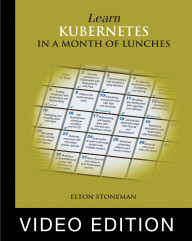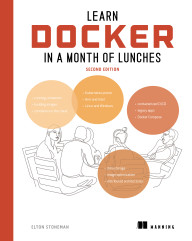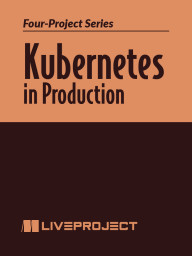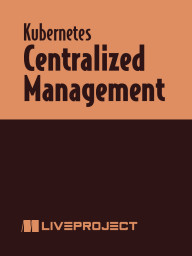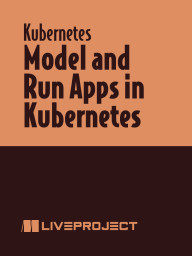products by Elton Stoneman
Learn Kubernetes in a Month of Lunches Video Edition
Learn Kubernetes in a Month of Lunches is your guide to getting up and running with Kubernetes. You'll progress from Kubernetes basics to essential skills, learning to model, deploy, and manage applications in production. Exercises demonstrate how Kubernetes works with multiple languages and frameworks. You'll also practice with new apps, legacy code, and serverless functions.
Learn Docker in a Month of Lunches Video Edition
Learn Docker in a Month of Lunches introduces Docker concepts through a series of brief hands-on lessons. Following a learning path perfected by author Elton Stoneman, you’ll run containers by chapter 2 and package applications by chapter 3. Each lesson teaches a practical skill you can practice on Windows, macOS, and Linux systems. By the end of the month you’ll know how to containerize and run any kind of application with Docker.
Learn Docker in a Month of Lunches, Second Edition
Learn Docker in a Month of Lunches, Second Edition teaches you the most important Docker techniques in just 22 short hands-on lessons. Each chapter guides you through an essential concept, complete with a self-contained lab to practice your new skill. You’ll explore building Docker apps, adding observability, running databases in containers, safely migrating legacy systems, and more. There’s even a primer on using Kubernetes to manage your containers!
Kubernetes in Production
In this liveProject series, you’ll deploy an existing web application to Kubernetes. Take on the role of a new DevOps engineer for IoT company Widgetario, which makes IoT devices and components for home automation systems. You’ve been given the job of taking its existing web platform and deploying it to Kubernetes. Each project in this series addresses a different stage of the process, bringing you from basic app configuration to setting up a production-grade Kubernetes environment.
Centralized Management
In this liveProject, you’ll improve on half-finished legacy work to add security, logging, and centralized monitoring to a Kubernetes cluster. Picking up where a previous employee left off, you’ll implement the final requirements of a Kubernetes application so that it’s ready to go live. You’ll establish secure access for testers and SREs, set up log collection and storage with the EFK stack, and deploy and configure the Prometheus tool to collect metrics from all the application components. Finally, you’ll set up an HTTP certificate and an ingress controller to listen for incoming traffic so it can be routed to your company’s domain. When you’re finished, you’ll be ready to flip the switch and set your application live!
Automate Deployments
In this liveProject, you’ll go hands-on to build an automated CI/CD pipeline for a Kubernetes-based application so your team can roll out new releases whenever there’s a new feature to go live. The pipeline you build will use the same process to make updates to the application platforms. You’ll work with a pre-deployed and working version of an application as you use Helm to create a single deployment package for all environments, configure safe automated deployments, and use affinity rules and selectors to prepare for high availability.
Prepare Apps for Production
In this liveProject, you’ll properly configure a Kubernetes app so that it’s secure and resilient in production. Working with a previously deployed application, you’ll set up the app to read configuration settings from the cluster so you can use the same Docker images in test and production. Extend your app’s specifications to activate Kubernetes’s self-healing, defend against attackers with security controls, and run a replicated database in containers. Once you’re finished, you’ll have a securely deployed demo app that’s resilient against whatever production throws at it.
Model and Run Apps in Kubernetes
In this liveProject, you’ll take an existing application and model it in Kubernetes. You’ll work with a prepackaged application for IoT company Widgetario to explore the core concepts of Kubernetes such as Pods and Deployments, Services, ConfigMaps, and Secrets. You’ll complete common tasks like routing network traffic, performing application updates, and configuring the app to run with high availability and scale. This project will ground you in the best practices of deploying an app to Kubernetes, with a fully working demo that can run with high availability and scale.
Learn Docker in a Month of Lunches
Learn Docker in a Month of Lunches introduces Docker concepts through a series of brief hands-on lessons. Following a learning path perfected by author Elton Stoneman, you’ll run containers by chapter 2 and package applications by chapter 3. Each lesson teaches a practical skill you can practice on Windows, macOS, and Linux systems. By the end of the month you’ll know how to containerize and run any kind of application with Docker.
